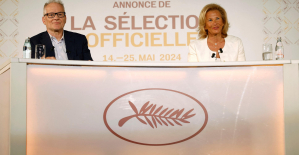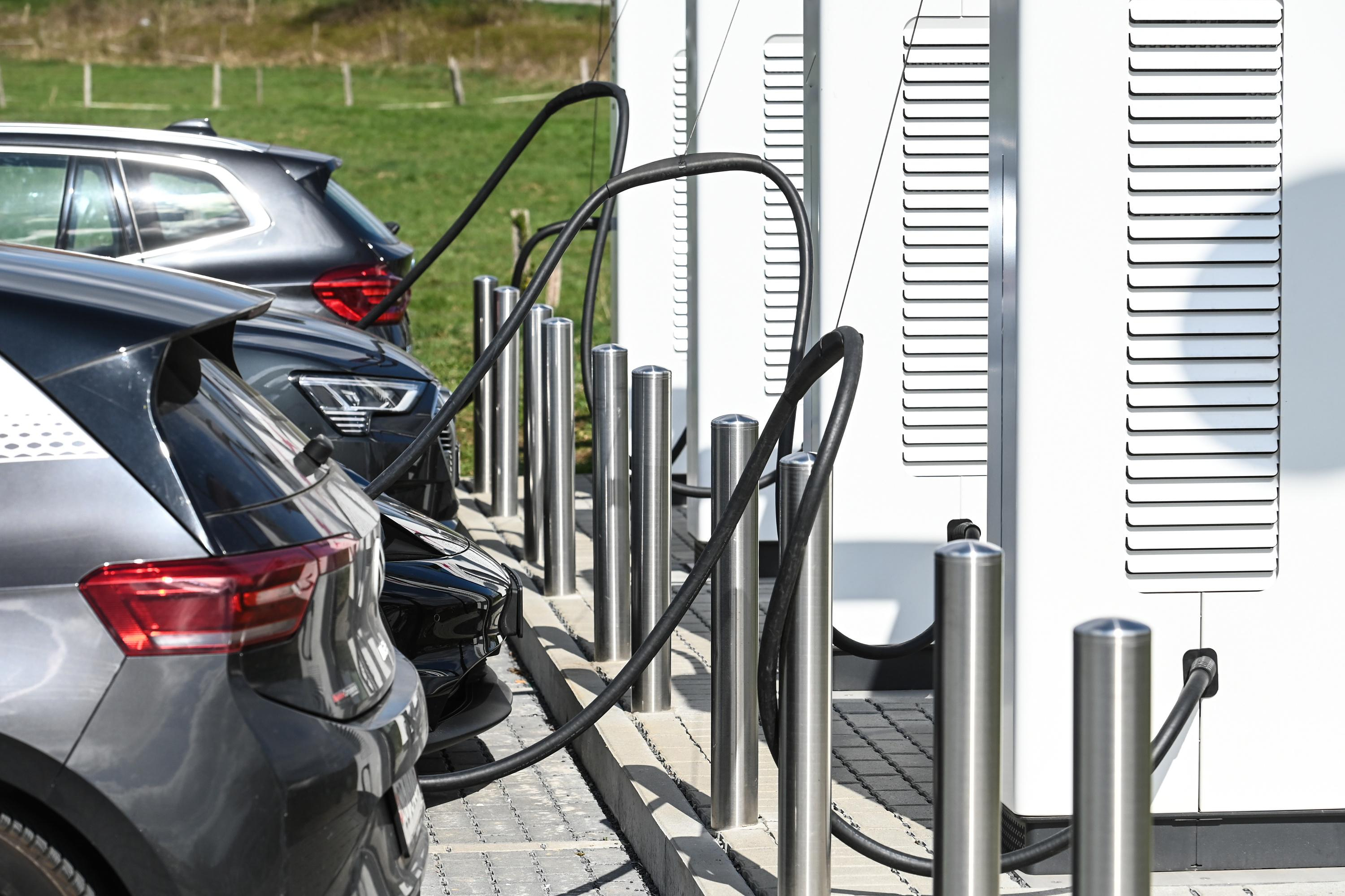Around the Zaporijia power plant, the largest facility in Europe, fighting continues between Russians and Ukrainians. The former would like to divert the electricity from the power station in order to supply the Crimea which they already occupy and at the same time deprive Ukraine of a precious energy resource. And the latter are trying to prevent them, which would explain, according to some analysts, the continuity of the clashes in the area.
One thing is certain: the Zaporijia site was "totally disconnected" from the network on Thursday August 25 due to damaged high-voltage lines, according to a press release from the Ukrainian operator EnergoAtom. “Specifically, there are four 750,000-volt lines on site, three of which have been down for some time. On Thursday, the fourth went down, due to a fire. to evacuate the power from the reactors (the lines are used both to transport the current to the outside and to cool the plant, editor's note). So reactors 5 and 6, which were the last to operate, were stopped. To our knowledge, another 330,000-volt high-voltage line, which connects the nuclear power plant to a nearby coal-fired power plant, continued to operate, supplying the plant's emergency systems", explains Olivier Dubois, deputy director safety expertise at the IRSN (Institute for Radiation Protection and Nuclear Safety). The cooling of the reactors has therefore been ensured, but we are dangerously approaching the last protective measures available, namely the use of emergency diesels.
Ukrainian President Volodymyr Zelensky is already threatening a radiological incident. And indeed, the probability of seeing an incident of this type occur has increased significantly, compared to a normal situation. However, predicting what will happen is proving extremely difficult for atomic experts because the human factor - in this case the behavior of the belligerents - remains preponderant. The most important thing at the moment is that the plant remains powered by electricity. "This is the critical point. Even if the reactors are now shut down, they must be permanently cooled," recalls Patrick Chardon, specialist in the effects of radioactivity on the environment at the Clermont-Ferrand Physics Laboratory. And the same goes for swimming pools containing radioactive elements that need electricity to evacuate the heat.
Relatively recent, the Zaporizhia power plant has safety elements far superior to those of Chernobyl. Each reactor is connected to two emergency diesels capable of holding out for a week without outside help. "The fact of being cut off from the network is something that is normally taken into account in the safety provisions of the design of the installations", adds Patrick Chardon. It is also technically possible to link the plant to areas that have come under Russian control. "It's a bit the opposite that happened a few months ago," said an observer. Ukraine has "disconnected" from Russia to connect to Europe by seven very high voltage lines. A project initially envisaged in 2017, the realization of which was precipitated by the war.
However, the presence of fighting in the Zaporijia area makes any operation more difficult and uncertain. Once again, the human aspect - more than the technical considerations - will determine the sequence of events. "The belligerents know the place perfectly well. They would have to really deliberately decide that there is an accident for there to be one", reports on BFMTV Valérie Faudon, general delegate of the French Nuclear Energy Company ( SFEN). Would the incident take the form of an ill-intentioned fire on a reactor or on the cooling pools, which do not have the same protections? Impossible to say. The human hazard also applies to the Ukrainian teams responsible for managing the plant, which remain under pressure since the Russians control the premises. "In each past disaster, the human factor has come into play, either through inappropriate behavior or through poor analysis of the situation...", confirms Patrick Chardon.
"A site like Zaporijia should be sanctuarized," said the specialist. At present, none of the seven rules issued by the IAEA for the plant to operate in good conditions are respected. In the event of a glitch, it would be very difficult to control any radioactive releases or to organize relief. "We are in an extraordinary situation", underlines the expert. And unfortunately, the lines of defense that separate us from an incident are shrinking.

 Germany: the trial of an AfD leader, accused of chanting a Nazi slogan, resumes this Tuesday
Germany: the trial of an AfD leader, accused of chanting a Nazi slogan, resumes this Tuesday New York: at Columbia University, the anti-Semitic drift of pro-Palestinian demonstrations
New York: at Columbia University, the anti-Semitic drift of pro-Palestinian demonstrations What is Akila, the mission in which the Charles de Gaulle is participating under NATO command?
What is Akila, the mission in which the Charles de Gaulle is participating under NATO command? Lawyer, banker, teacher: who are the 12 members of the jury in Donald Trump's trial?
Lawyer, banker, teacher: who are the 12 members of the jury in Donald Trump's trial? What High Blood Pressure Does to Your Body (And Why It Should Be Treated)
What High Blood Pressure Does to Your Body (And Why It Should Be Treated) Vaccination in France has progressed in 2023, rejoices Public Health France
Vaccination in France has progressed in 2023, rejoices Public Health France Food additives suspected of promoting cardiovascular diseases
Food additives suspected of promoting cardiovascular diseases “Even morphine doesn’t work”: Léane, 17, victim of the adverse effects of an antibiotic
“Even morphine doesn’t work”: Léane, 17, victim of the adverse effects of an antibiotic Orthodox bishop stabbed in Sydney: Elon Musk opposes Australian injunction to remove videos on X
Orthodox bishop stabbed in Sydney: Elon Musk opposes Australian injunction to remove videos on X One in three facial sunscreens does not protect enough, warns L'Ufc-Que Choisir
One in three facial sunscreens does not protect enough, warns L'Ufc-Que Choisir What will become of the 81 employees of Systovi, a French manufacturer of solar panels victim of “Chinese dumping”?
What will become of the 81 employees of Systovi, a French manufacturer of solar panels victim of “Chinese dumping”? “I could lose up to 5,000 euros per month”: influencers are alarmed by a possible ban on TikTok in the United States
“I could lose up to 5,000 euros per month”: influencers are alarmed by a possible ban on TikTok in the United States Dance, Audrey Hepburn’s secret dream
Dance, Audrey Hepburn’s secret dream The series adaptation of One Hundred Years of Solitude promises to be faithful to the novel by Gabriel Garcia Marquez
The series adaptation of One Hundred Years of Solitude promises to be faithful to the novel by Gabriel Garcia Marquez Racism in France: comedian Ahmed Sylla apologizes for “having minimized this problem”
Racism in France: comedian Ahmed Sylla apologizes for “having minimized this problem” Mohammad Rasoulof and Michel Hazanavicius in competition at the Cannes Film Festival
Mohammad Rasoulof and Michel Hazanavicius in competition at the Cannes Film Festival Skoda Kodiaq 2024: a 'beast' plug-in hybrid SUV
Skoda Kodiaq 2024: a 'beast' plug-in hybrid SUV Tesla launches a new Model Y with 600 km of autonomy at a "more accessible price"
Tesla launches a new Model Y with 600 km of autonomy at a "more accessible price" The 10 best-selling cars in March 2024 in Spain: sales fall due to Easter
The 10 best-selling cars in March 2024 in Spain: sales fall due to Easter A private jet company buys more than 100 flying cars
A private jet company buys more than 100 flying cars This is how housing prices have changed in Spain in the last decade
This is how housing prices have changed in Spain in the last decade The home mortgage firm drops 10% in January and interest soars to 3.46%
The home mortgage firm drops 10% in January and interest soars to 3.46% The jewel of the Rocío de Nagüeles urbanization: a dream villa in Marbella
The jewel of the Rocío de Nagüeles urbanization: a dream villa in Marbella Rental prices grow by 7.3% in February: where does it go up and where does it go down?
Rental prices grow by 7.3% in February: where does it go up and where does it go down? Europeans: “All those who claim that we don’t need Europe are liars”, criticizes Bayrou
Europeans: “All those who claim that we don’t need Europe are liars”, criticizes Bayrou With the promise of a “real burst of authority”, Gabriel Attal provokes the ire of the opposition
With the promise of a “real burst of authority”, Gabriel Attal provokes the ire of the opposition Europeans: the schedule of debates to follow between now and June 9
Europeans: the schedule of debates to follow between now and June 9 Europeans: “In France, there is a left and there is a right,” assures Bellamy
Europeans: “In France, there is a left and there is a right,” assures Bellamy These French cities that will boycott the World Cup in Qatar
These French cities that will boycott the World Cup in Qatar Serie A: Bologna surprises AS Rome in the race for the C1
Serie A: Bologna surprises AS Rome in the race for the C1 Serie A: Marcus Thuram king of Italy, end of the debate for the position of number 9 with the Blues?
Serie A: Marcus Thuram king of Italy, end of the debate for the position of number 9 with the Blues? Milan AC-Inter Milan: Thuram and Pavard impeccable, Hernandez helpless… The tops and flops of the derby
Milan AC-Inter Milan: Thuram and Pavard impeccable, Hernandez helpless… The tops and flops of the derby Ligue 2: Auxerre leader, Bordeaux in crisis, play-offs... 5 questions about an exciting end of the season
Ligue 2: Auxerre leader, Bordeaux in crisis, play-offs... 5 questions about an exciting end of the season


















